Nội Dung Chính
Page 122
be: affirmative and negative
| Affirmative | Negative |
| Full form | Short form | Full form | Short form |
| I am You are He is She is It is We are You are They are | I'm You're He's She's It's We're You're They're | I am not You are not He is not She is not It is not We are not You are not They are not | I'm not You aren't He isn't She isn't It isn't We aren't You aren't They aren't |
The verb be is after the subject (I, he, she, you ...)
I am twelve. He is from Berlin.
To make the negative form, add not after the verb.
She is not good at art.
We are not into shopping.
In spoken or informal written English we use the short forms.
She isn't good at art.
We aren't into shopping.
Subject pronouns and possessive adjectives
| Subject pronouns | Possessive adjectives |
| I you he she it we you they | my your his her its our your their |
Usage
We use subject pronouns in place of names (Jessica, Melisa, Tom ...) or nouns (book, photo, friend...). We use them when we know the person or thing we are talking about.
Jessica is from London. She's from London.
This book is good. It's good.
Remember: Subject pronouns cannot be left out of a sentence.
She's from Oxford. NOT Is from Oxford.
Possessive adjectives show that something belongs to a person. We use them when we know the person or thing we are talking about.
Dan is a good friend. His house is next to my house.
Ann and Paul are interested in photography.
Their photos are really good.
Possessive 's
For singular nouns, add 's to the noun.
Mark's room the student's pen
For plural nouns, add '.
the teachers' desks
For irregular plural nouns, add 's.
the children's teacher
Usage
The possessive 's shows that something belongs to a person.
Richard's book the girls' chairs
be: questions
| Questions | Short answers | |
| Affirmative | Negative | |
| Am I ...? Are you ...? Is he...? Is she ... ? Is it ...? Are we ...? Are you ...? Are they ...? | Yes, I am. Yes, you are. Yes, he is. Yes, she is. Yes, it is. Yes, we are. Yes, you are. Yes, they are. | No, I'm not. No, you aren't. No, he isn't. No, she isn't. No, it isn't. No, we aren't. No, you aren't. No, they aren't. |
In yes / no questions, the verb be is the first word of the sentence before the subject.
Are you into cycling?
In spoken or informal written English, we use the short forms of negative short answers.
Are you into sport? Yes, I am. NOT Yes, I'm.
Usage
We use the verb be for personal information - ages, names, jobs and nationalities, and with be interested in, be into and be good at.
They're teachers. They're interested in art.
He's fourteen. He's good at sport.
We aren't from Oxford.
She isn't Italian.
Page 123
this, that, these, those
| Singular | Plural |
| This is my brother Oscar. That's a cool bag. | These are my friends Lola and Erin. Those are nice photos. |
Use this and these for things that are close to the person who is speaking.
Use that and those for things that are further away from the person who is speaking.
have got
| Affirmative | Negative |
| I've got a pen. He's got a pen. We've got a pen. | I haven't got a pen. He hasn't got a pen. We haven't got a pen. |
We make the affirmative form with the subject plus have got or has got.
To make the negative form, use the subject plus have not got or has not got.
In spoken or informal written English, we use the short forms 've got, 's got, haven't got and hasn't got.
| Questions | Short answers | |
| Affirmative | Negative | |
| Have I got a pen? Has he got a pen? | Yes, I have. Yes, he has. Yes, we have. | No, I haven't. No, he hasn't. No, we haven't. |
We make questions with have / has plus subject plus got.
We make short answers with have, but without got.
Yes, I have. NOT Yes, I have got.
Note that we do not make questions and negative forms with do / does or don't / doesn't.
Have you got a notebook? NOT Do you have got a notebook?
He hasn't got a sister. NOT He doesn't have got a sister.
Usage
We use have got to talk about possession. It is also used to talk about our families.
We've got a good dictionary.
Ella hasn't got a pencil in her bag.
Have you got a laptop? No, I haven't.
I've got two brothers and a sister.
Has Jessica got a sister? Yes, she has. Her name's Emily.
Have you got a brother or sister at this school? Yes, I have.
My sister is in class 8B.
Question words: Where ...?, What ...?, Who...?
Where's your friend from?
What's the capital of France?
Who's the president of their country?
Use the question words Where, What, Who at the beginning of questions to ask about specific information.
In informal and spoken English we often contract the verb be with question words Where, What and Who.
Who's your favourite teacher?
What's her name?
Where's your classroom?
Conjunctions: and, or, but
To join words and sentences, use and.
I've got a pen and a notebook.
He's twelve and he's from London.
To talk about alternatives, use or.
Is his name Rory or Billy?
he mobile phone is under the table or under the bed.
To show contrast, use but.
He's into music, but he isn't interested in art.
Amy is five, but she's very good at reading.
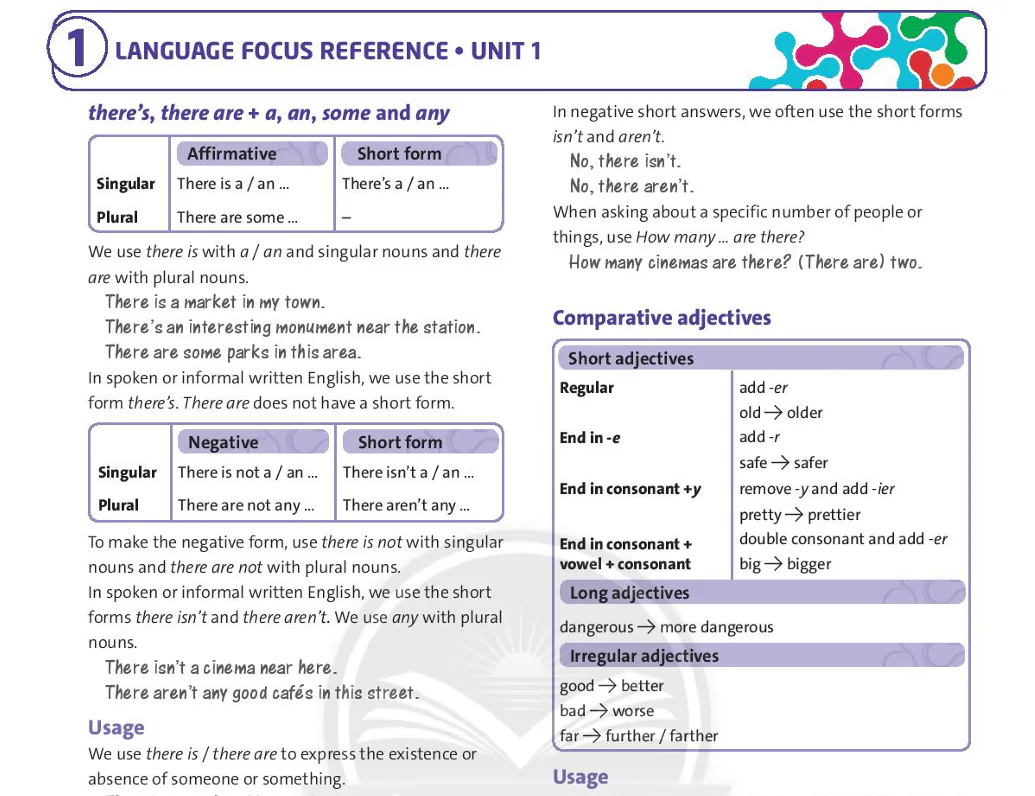
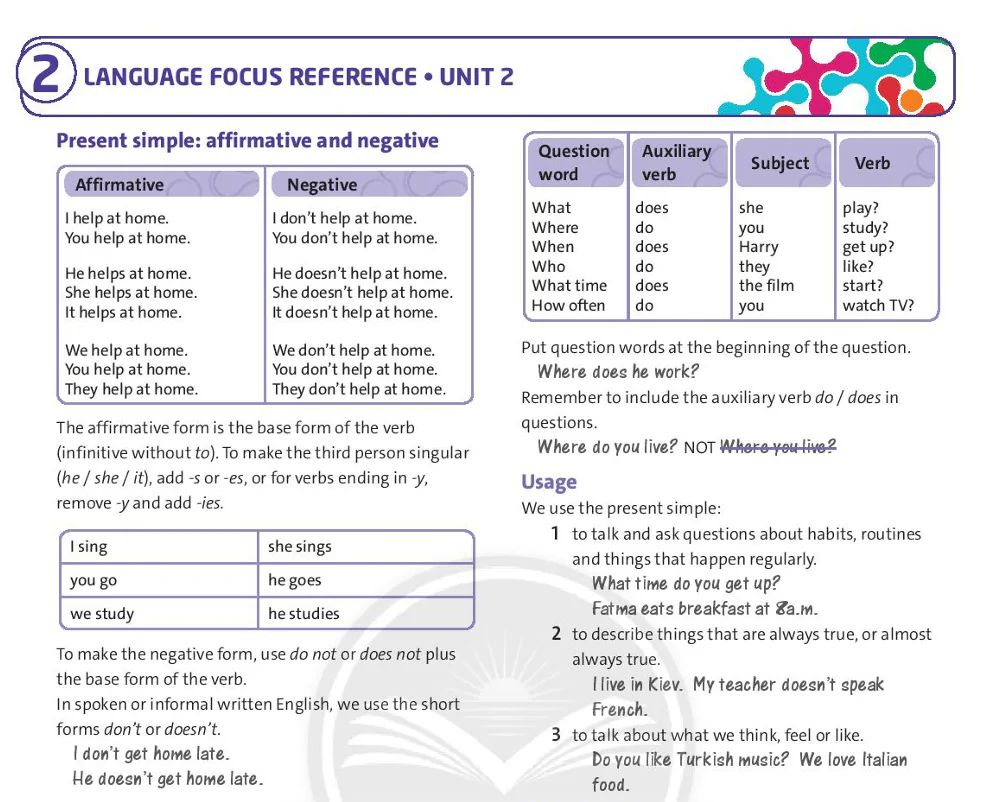
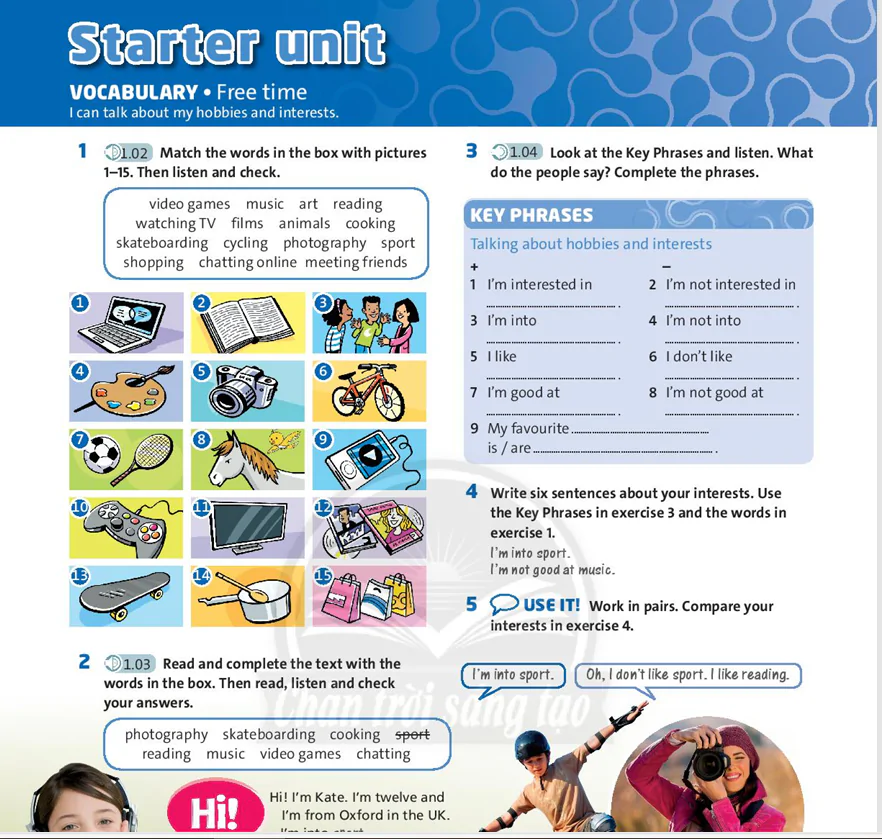
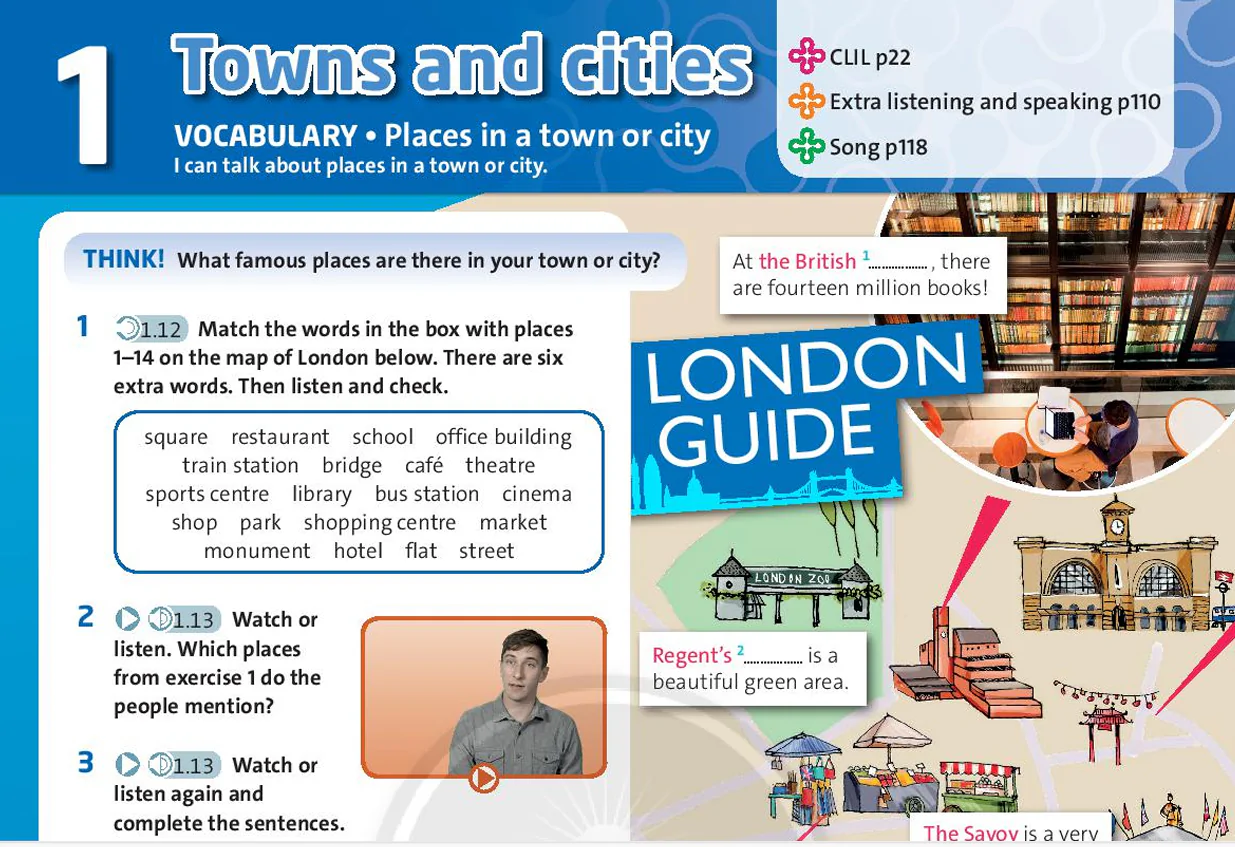
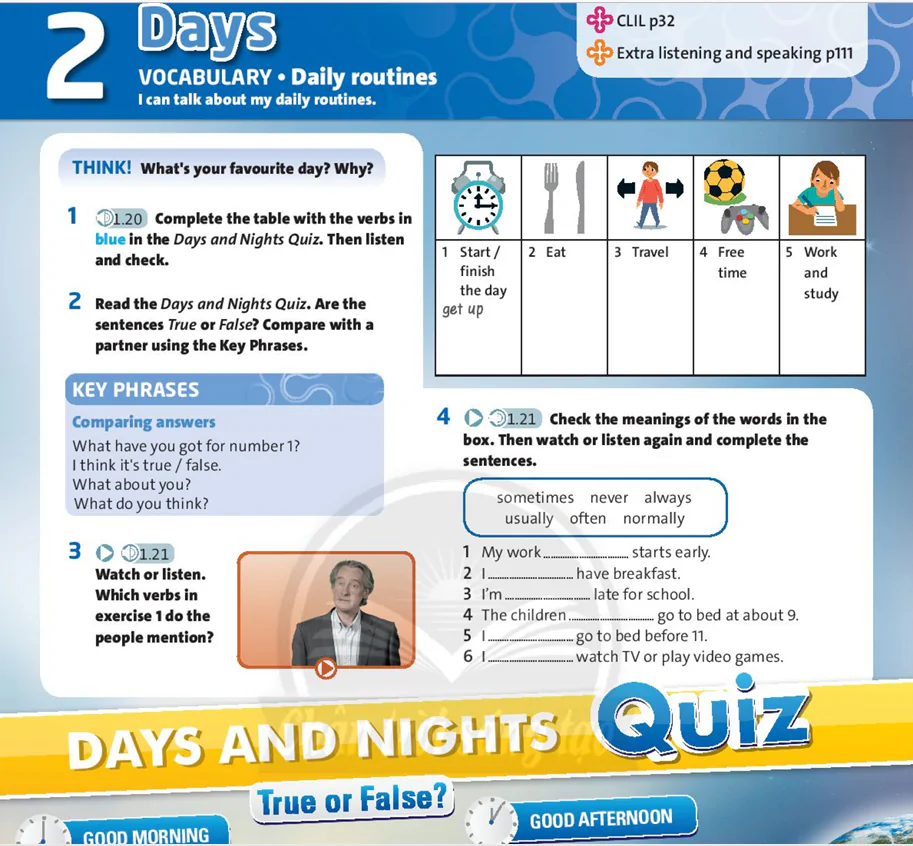
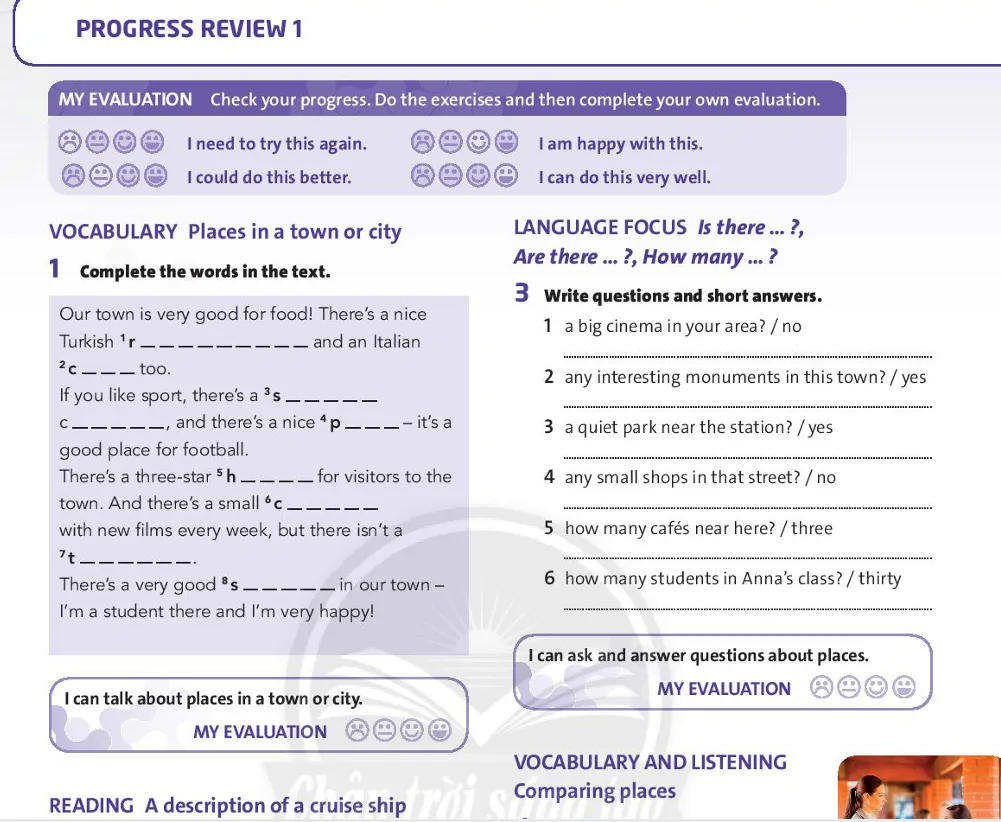
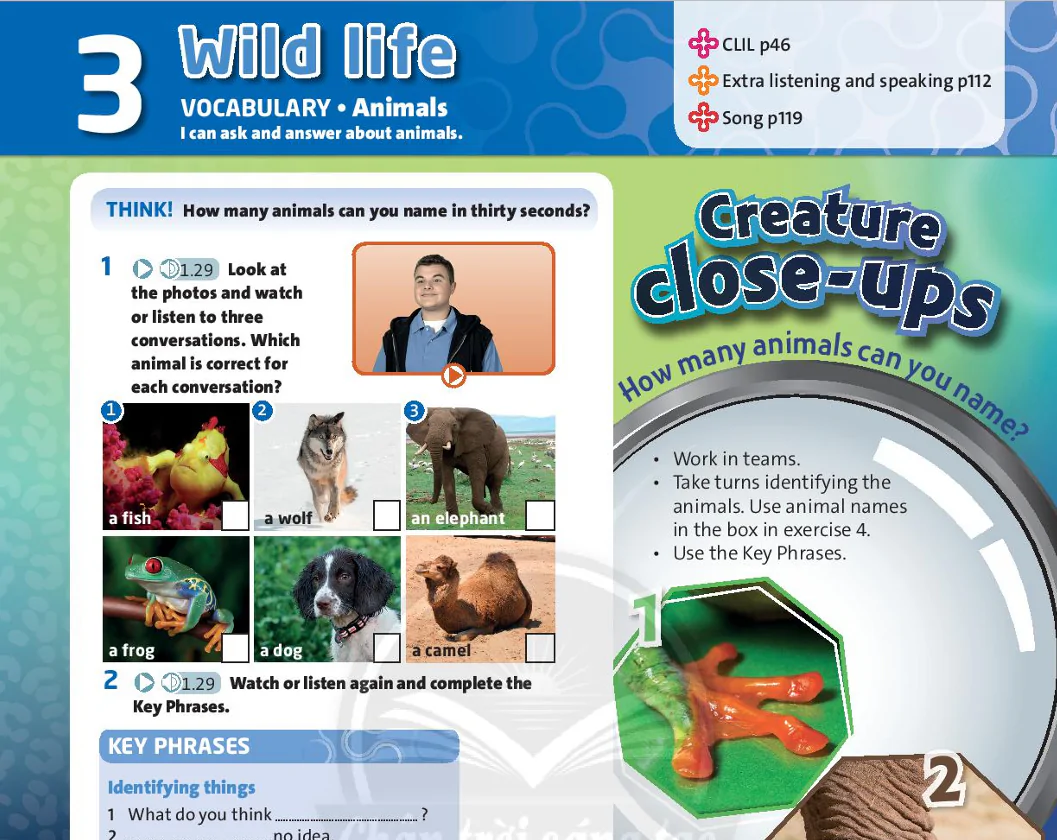
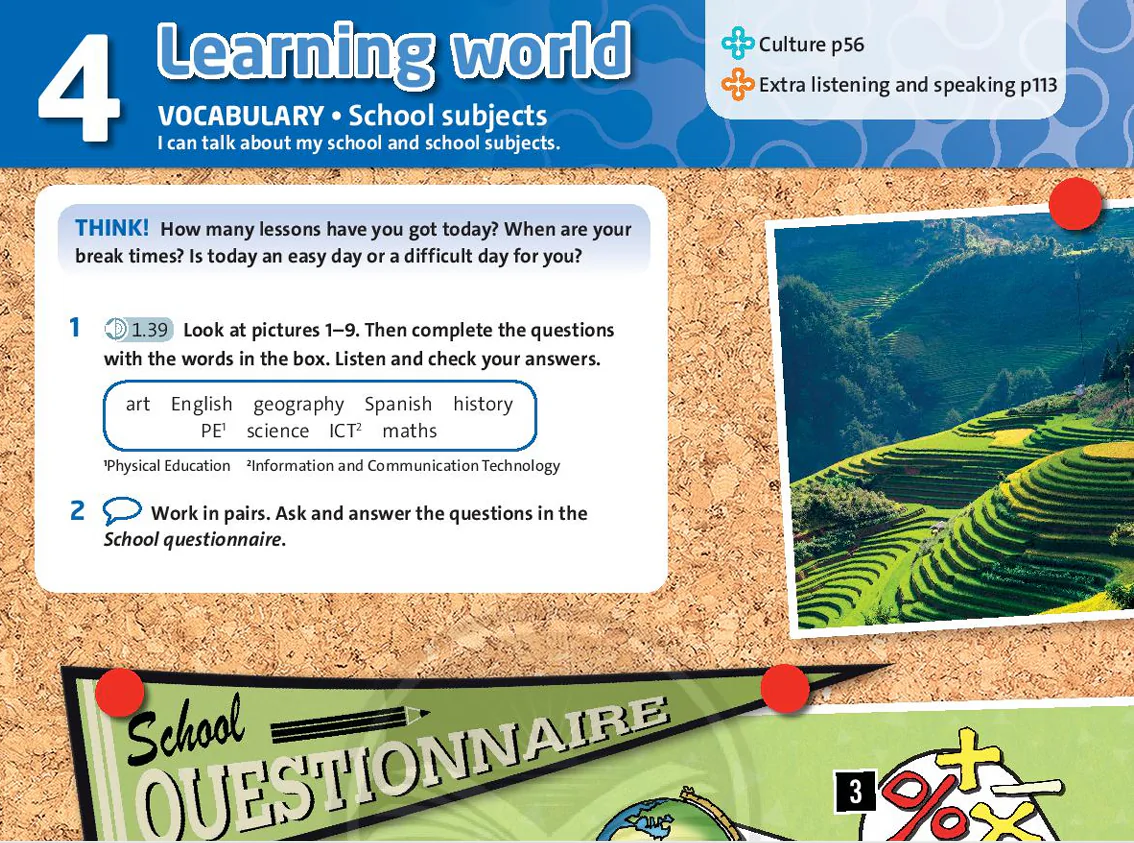
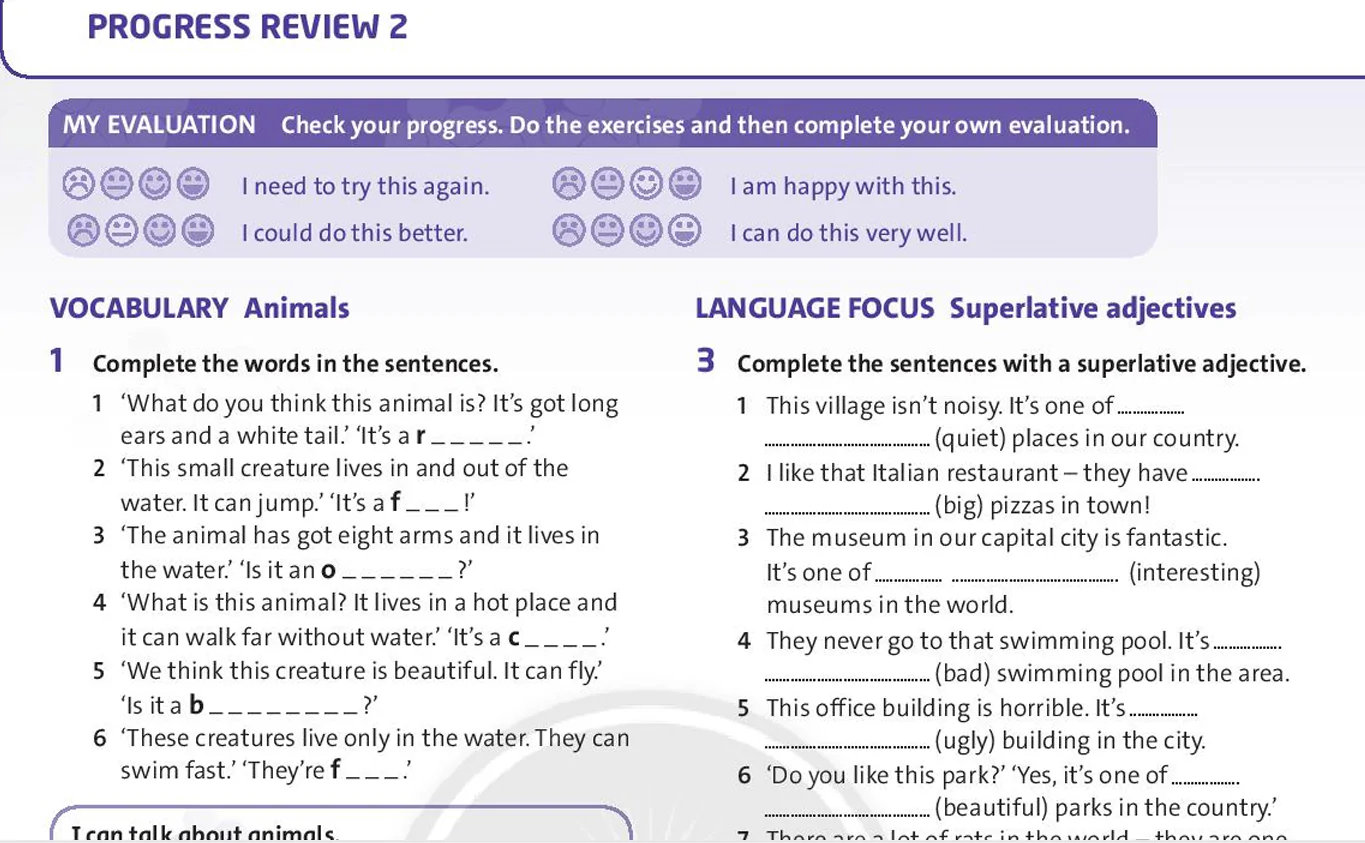
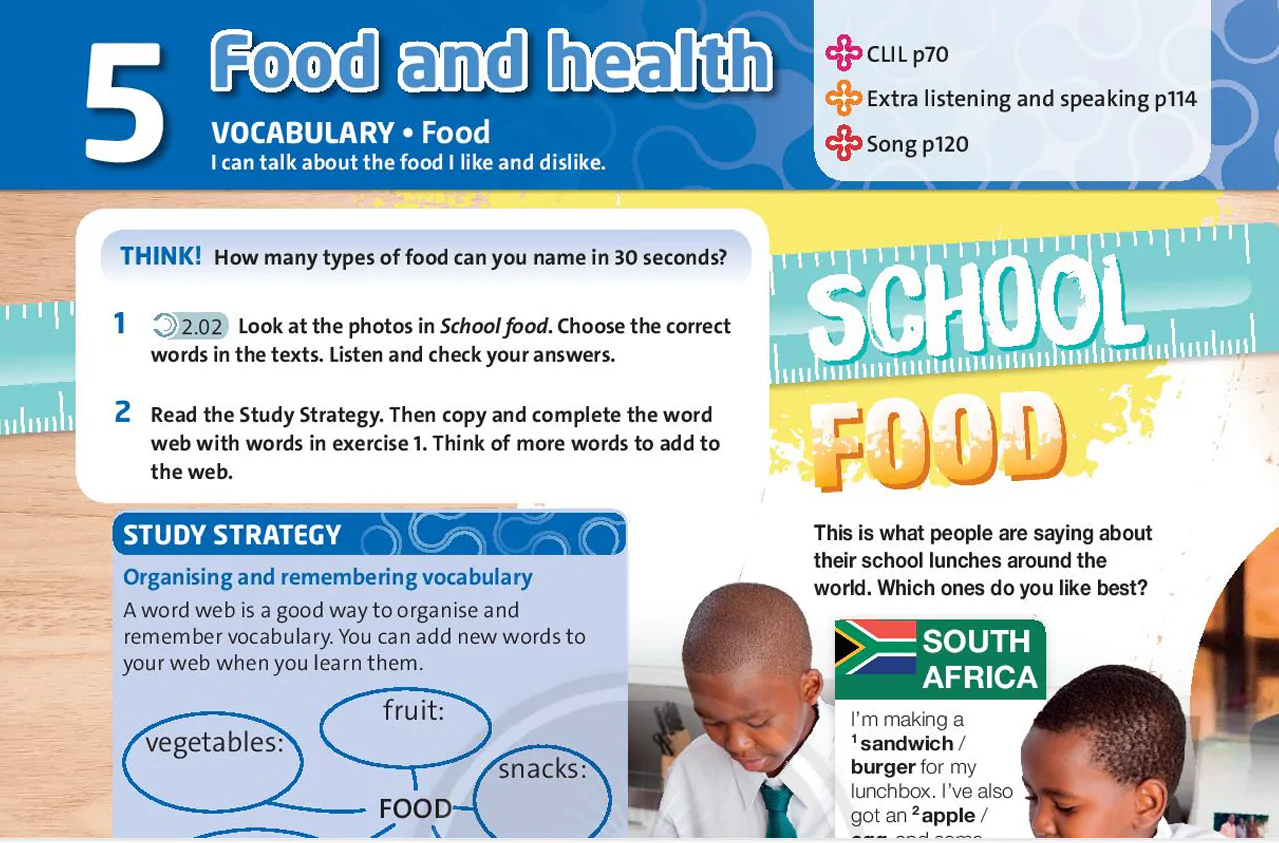
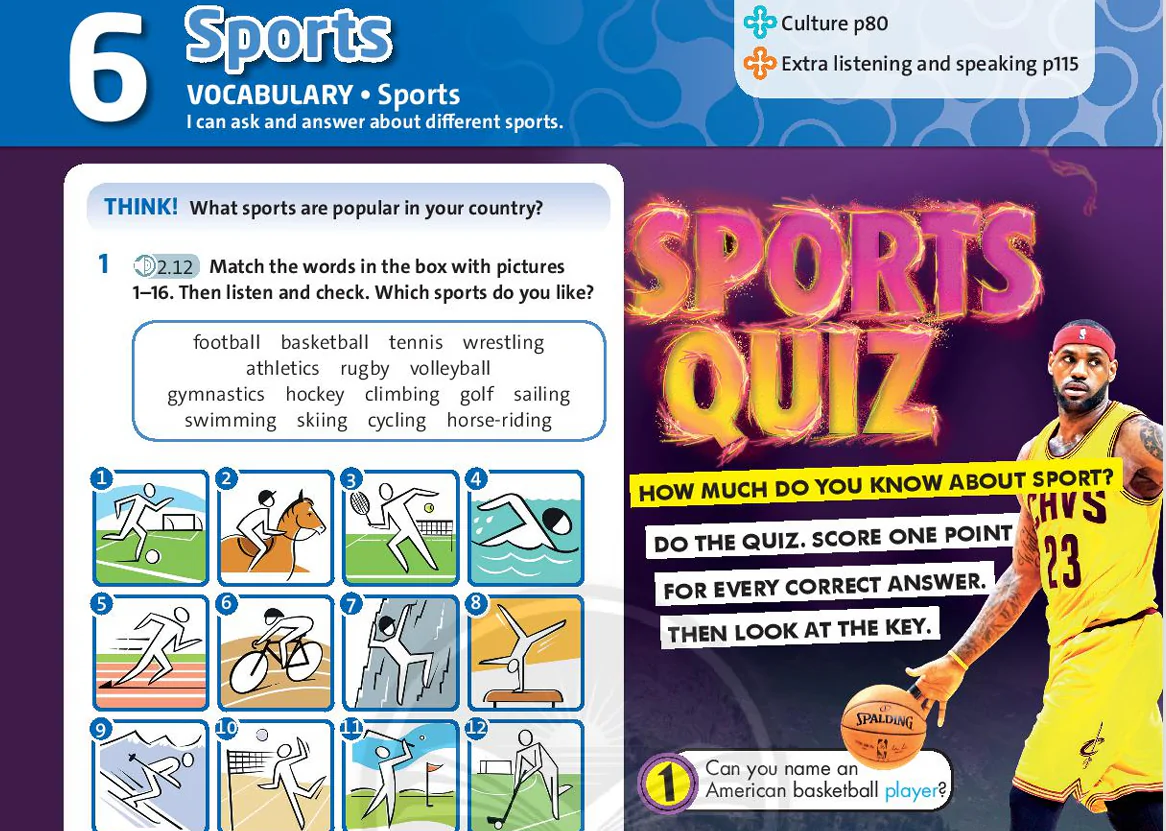
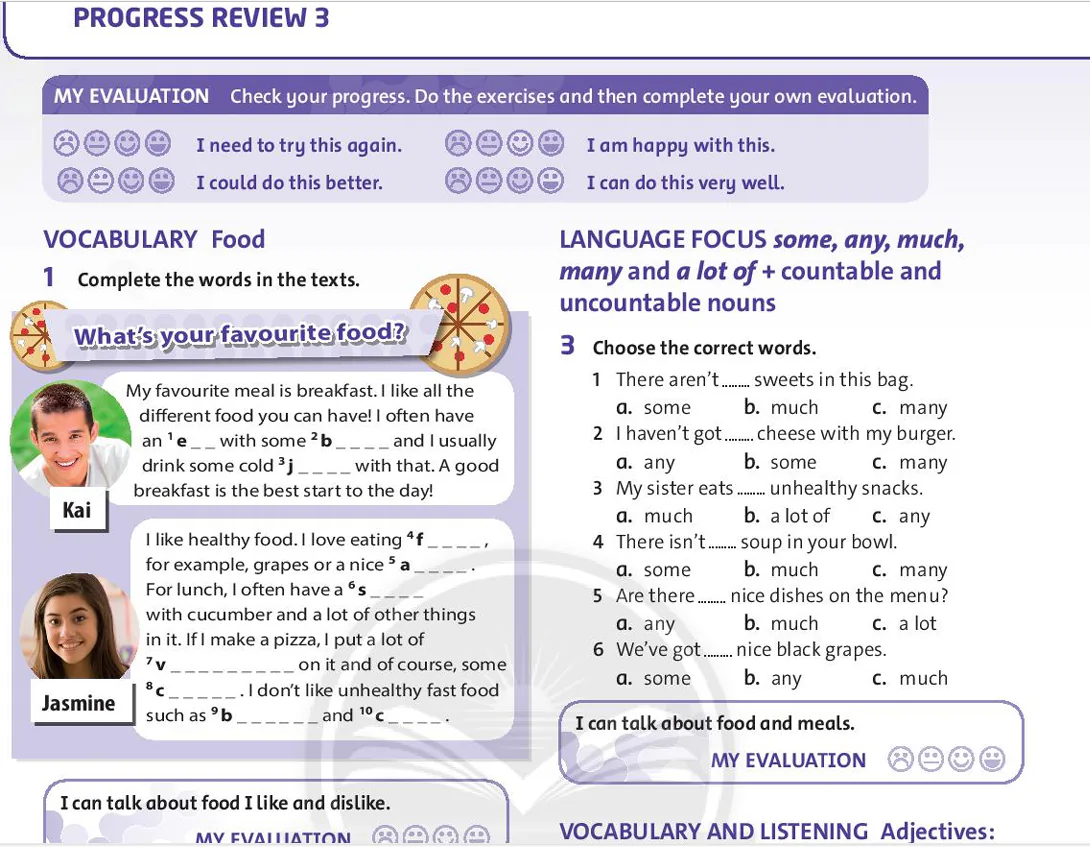
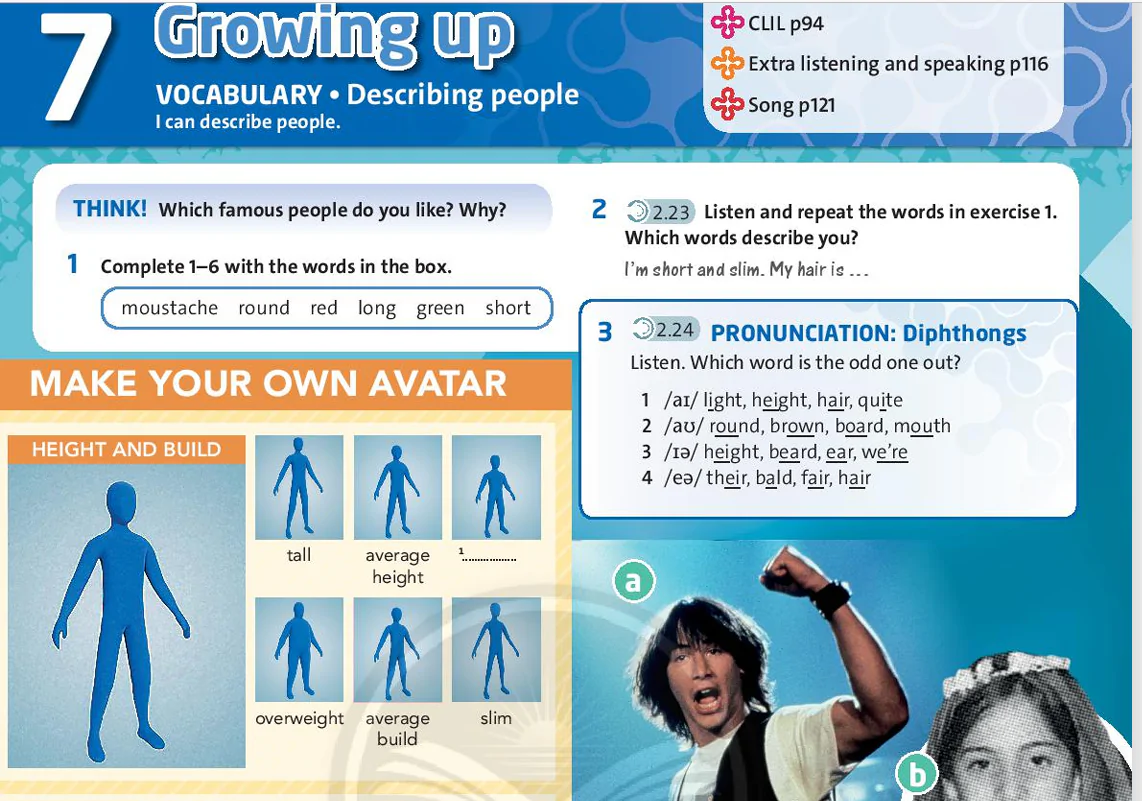
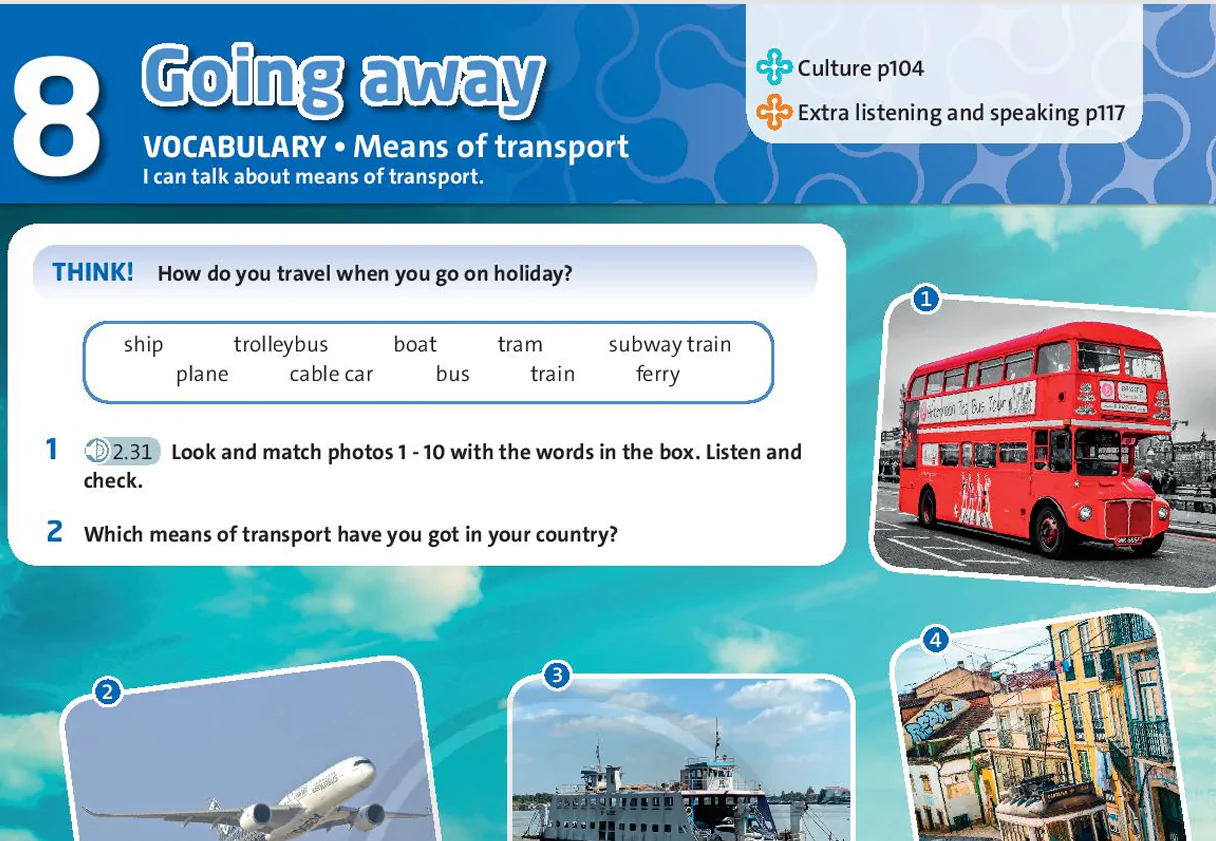
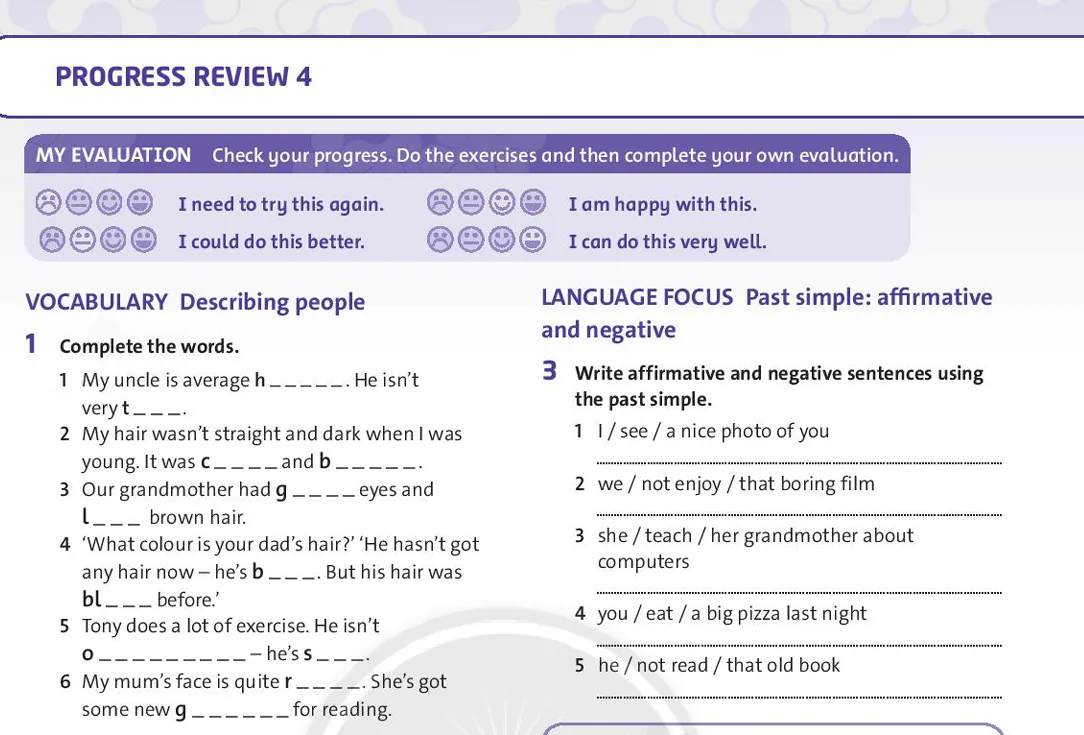
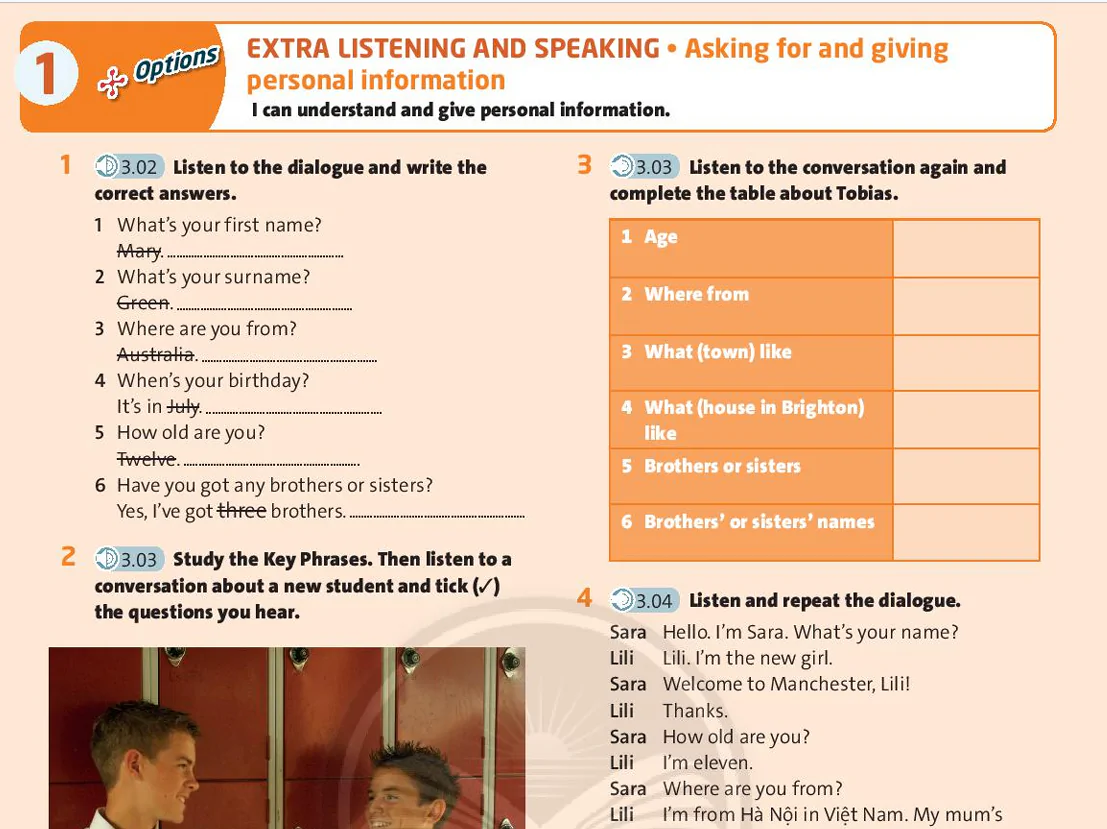
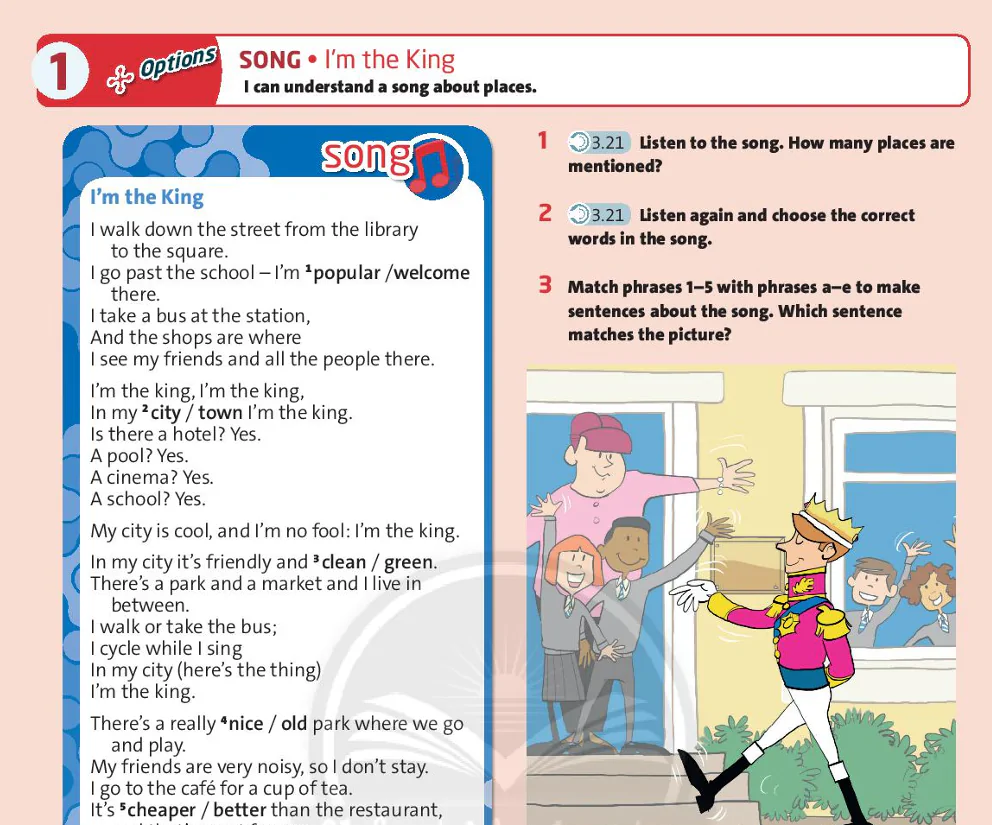
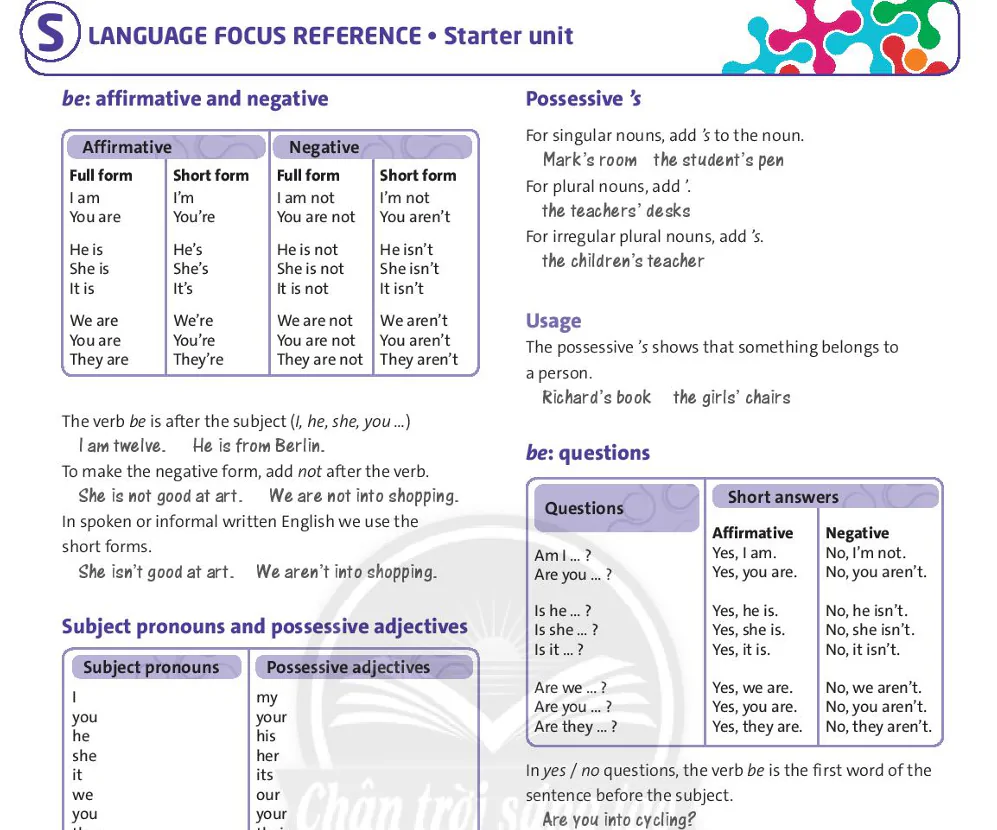
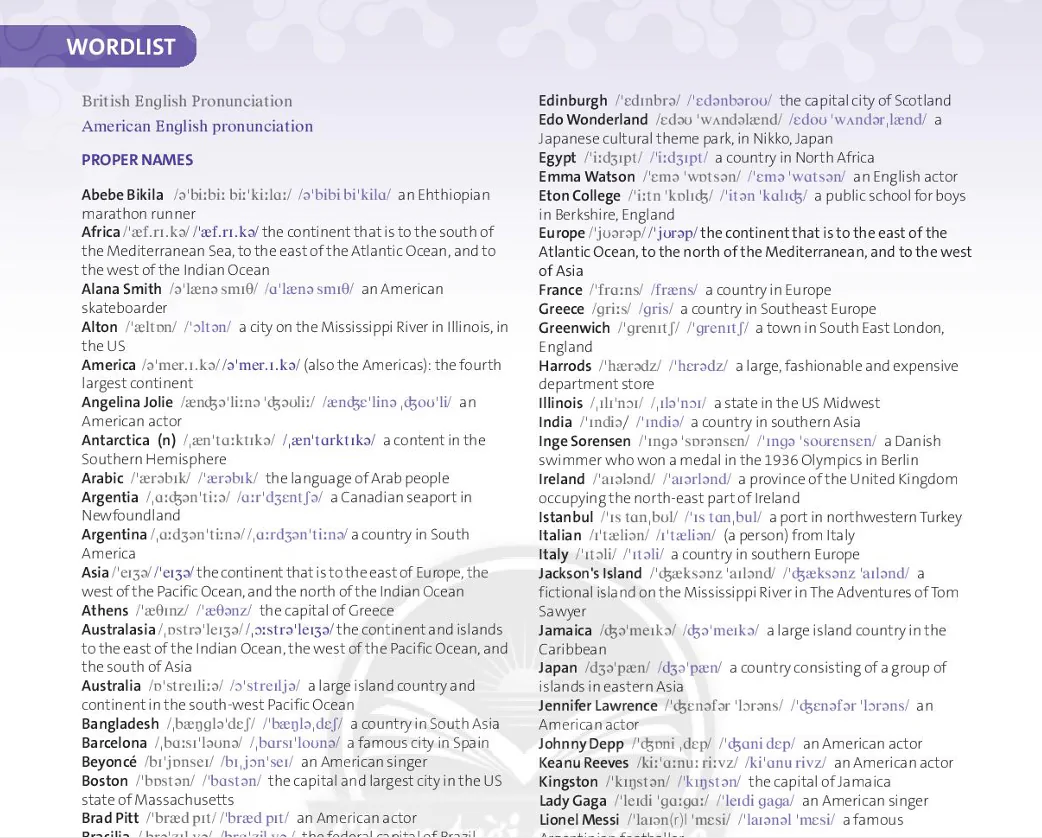




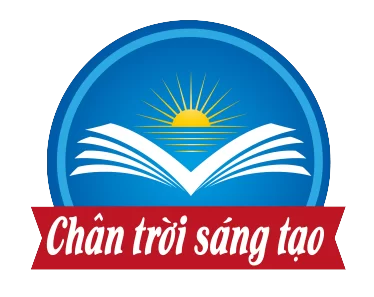














Bình Luận
Để Lại Bình Luận Của Bạn